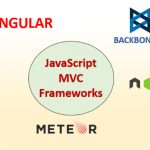What is ChatGPT? Exploring the Latest Trends
by Mansa HR
Posted on 02/22/24 5:57 AM

ChatGPT, short for Chat Generative Pre-trained Transformer, is an advanced language model developed by OpenAI. It is designed to understand and generate human-like text based on the input it receives. This innovative technology has gained significant attention in recent years due to its diverse applications across various industries. In this blog post, we will delve into the intricacies of ChatGPT, exploring its architecture, capabilities, real-world use cases, limitations, ethical implications, and more.
What is ChatGPT?
ChatGPT is an AI language model that utilizes a transformer-based architecture to process and generate human-like text. It has been trained on a diverse range of internet text data, allowing it to understand and respond to natural language input in a coherent and contextually relevant manner. The model’s ability to generate text that closely resembles human speech has made it a valuable tool in numerous applications.
How ChatGPT Works?
ChatGPT operates on a transformer-based architecture, which enables it to process and generate text by attending to different parts of the input sequence. This architecture allows the model to capture long-range dependencies and contextual information, resulting in more accurate and coherent text generation. Additionally, ChatGPT has been trained on a vast corpus of internet text data, encompassing a wide array of topics and writing styles. This extensive training data enables the model to exhibit a diverse range of linguistic capabilities.
Capabilities of ChatGPT
- Text Generation: ChatGPT excels in generating human-like text based on the input it receives, making it suitable for tasks such as content creation, storytelling, and more.
- Summarization: The model can effectively condense lengthy passages of text into concise summaries, aiding in information retrieval and content analysis.
- Coding: ChatGPT can assist developers by providing code snippets and resolving programming-related queries.
Question Answering: It is proficient in answering questions by leveraging its comprehensive knowledge base.
Real-world Use Cases of ChatGPT
- Education: ChatGPT can be utilized as a virtual tutor, providing personalized learning experiences and educational assistance to students.
- Marketing: The model can aid in content creation, marketing copywriting, and customer engagement through natural language interactions.
Customer Support: ChatGPT can enhance customer support services by providing timely and accurate responses to inquiries and issues.
Limitations of ChatGPT
While ChatGPT demonstrates remarkable linguistic capabilities, it is not without its limitations. Some of the key considerations include:
- Accuracy: The model’s responses may not always be entirely accurate or contextually appropriate.
- Bias: ChatGPT may exhibit biases present in the training data, potentially leading to biased or discriminatory outputs.
Hallucination: There is a possibility of the model generating fictitious or misleading information, especially in open-ended scenarios.
Ethical Implications of ChatGPT
The widespread adoption of AI models like ChatGPT raises important ethical considerations. It is crucial to address issues related to privacy, bias, transparency, and accountability when deploying such technologies. Additionally, measures should be taken to mitigate the potential misuse of AI-generated content for malicious purposes.
Hands-on Prompts and Experiments with ChatGPT
To fully grasp the capabilities of ChatGPT, individuals can engage in hands-on prompts and experiments to explore the model’s text generation prowess. By providing different types of input and analyzing the corresponding outputs, users can gain insights into the model’s strengths and limitations.
Conclusion
In conclusion, ChatGPT represents a significant advancement in AI language models, offering a wide range of capabilities that can be harnessed across various domains. While it holds tremendous potential for innovation and efficiency, it is essential to approach its use with careful consideration of ethical implications and limitations. As the technology continues to evolve, it is crucial to foster responsible deployment and utilization of AI models like ChatGPT.
At Mansa Infotech, we are at the forefront of harnessing the potential of ChatGPT and providing innovative solutions that leverage this groundbreaking technology. If you are looking to explore the possibilities of ChatGPT for your business or have any inquiries about our services, please feel free to contact us.
Frequently Asked Questions – FAQs
- What is ChatGPT used for?
ChatGPT can be used for various applications such as text generation, summarization, coding assistance, question answering, educational support, marketing content creation, and customer support.
- Is ChatGPT free?
OpenAI provides access to certain versions of ChatGPT through its API, but usage may be subject to usage-based pricing or subscription fees.
- Who is the owner of ChatGPT?
ChatGPT is developed by OpenAI, an artificial intelligence research laboratory consisting of a team of researchers and engineers dedicated to advancing AI technologies.
- Is ChatGPT safe to use?
While ChatGPT offers valuable capabilities, users should exercise caution and awareness of potential limitations such as accuracy, bias, and ethical considerations when utilizing the model.
- What is better than ChatGPT?
There are various AI language models and natural language processing technologies available, each with its own unique strengths and applications. The choice of a suitable model depends on specific use cases and requirements.
Categories
-

JavaScript Frameworks
02/27/24 12:46 PM
-

API First Development
02/22/24 6:19 AM
-

Mobile Commerce: The Future of Online Shopping
02/22/24 6:09 AM
-

What is ChatGPT? Exploring the Latest Trends
02/22/24 5:57 AM
-

The Power of AI in App Development
02/5/24 7:44 AM
